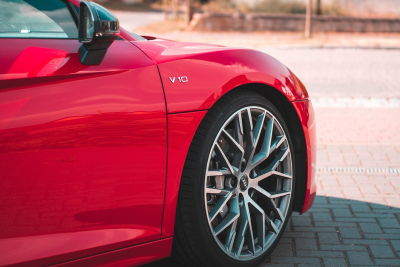Pressure from global markets
The automotive sector is undergoing a profound transformation, driven by two significant challenges. First, stringent emissions regulations imposed by governments around the world are forcing automakers to accelerate the development of cleaner technologies, including electric vehicle (EV) and battery innovations. Failure to comply with these regulations could result in hefty fines, loss of market share, or even legal repercussions.
Second, competition from Chinese automakers, particularly in the EV segment, has intensified. China's EV producers are looking to offload their surplus production by expanding into international markets, which has triggered a price war in the automotive sector. Hyundai and GM, like other global carmakers, are keenly aware of this competitive threat and are taking steps to ensure they remain competitive in this evolving landscape.
Joint development agreement
On Thursday, Hyundai Motor Executive Chair Euisun Chung and GM Chair and CEO Mary Barra signed a non-binding framework agreement that outlines the scope of their collaboration. The agreement focuses on several key areas: product development, manufacturing processes, and future clean energy technologies. This includes joint work on internal combustion engines, clean-energy vehicles, and, notably, the development of electric and hydrogen vehicles.
Barra emphasized the strategic benefits of the partnership, stating, "Our goal is to unlock the scale and creativity of both companies to deliver even more competitive vehicles to customers faster and more efficiently." The partnership will combine the technological and manufacturing expertise of both companies, aiming to deliver significant cost efficiencies while accelerating the pace of innovation.
Hyundai's affiliate Kia, which is part of the Hyundai Motor Group, plays a crucial role in the automotive giant's global strategy. According to data from Reuters, Hyundai Motor, including Kia, is currently the world's third-largest automaker by sales. GM, on the other hand, regained its position as America’s largest carmaker in 2022, overtaking Toyota.
Strategic value of partnerships in the automotive industry
Partnerships in the automotive sector have become increasingly common as manufacturers look for ways to share costs, resources, and expertise. The collaboration between Hyundai and GM is not an isolated case. For instance, in 2022, Nissan and Renault solidified their revamped alliance with a focus on developing electric vehicles. Similarly, GM has also partnered with Honda, along with its subsidiary Cruise, to establish a driverless ride-hailing service in Japan. Such partnerships enable automakers to remain agile and innovative in an industry characterized by rapid technological advancements and changing market dynamics.
Euisun Chung echoed this sentiment in his statement, highlighting that the collaboration with GM will allow both companies to "evaluate opportunities to enhance competitiveness in key markets and vehicle segments, as well as drive cost efficiencies and provide stronger customer value."
source: CTV NEWS


 Starting this week, the Canada Border Services Agency (CBSA) has begun sharing selected vehicle export information with trusted partners. This
Starting this week, the Canada Border Services Agency (CBSA) has begun sharing selected vehicle export information with trusted partners. This Visual content is essential for capturing audience attention and conveying your brand message effectively.
Visual content is essential for capturing audience attention and conveying your brand message effectively.
 n the arena of digital advertising and sales, a powerful email series can be the key to nurturing leads, final
n the arena of digital advertising and sales, a powerful email series can be the key to nurturing leads, final

